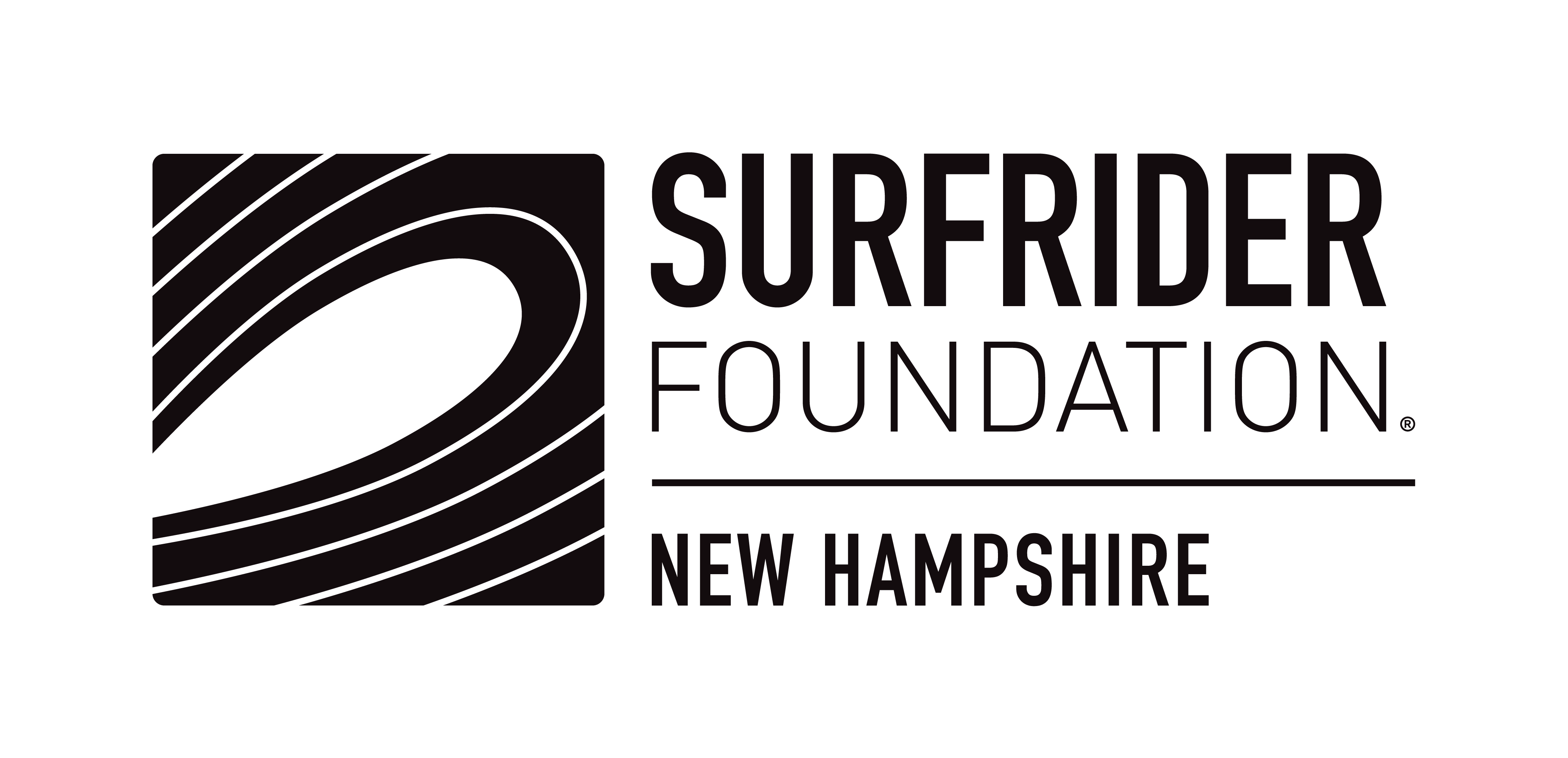
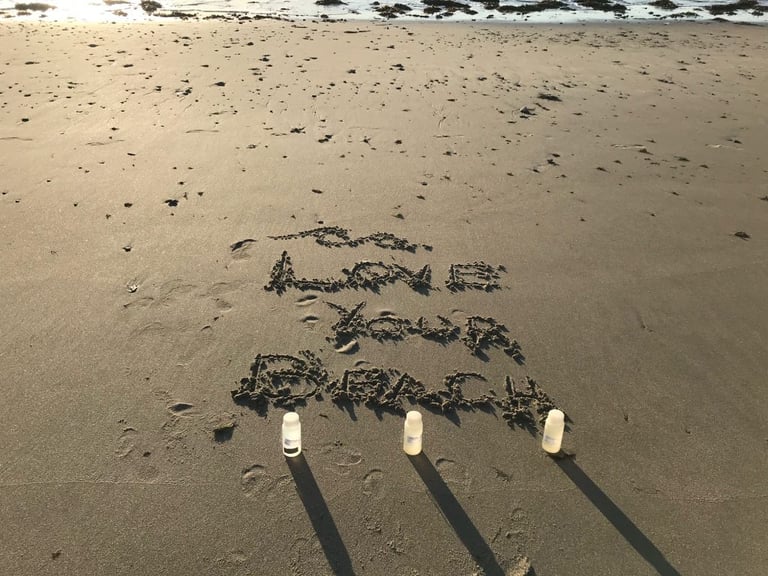
This month Surfrider NH’s water quality sampling program got started once again with their efforts to test local water quality. Known as the Blue Water Task Force (BWTF), the testing program kicked off 3/3 and is scheduled to run biweekly through the end of May, totaling seven rounds of testing.
The program, run during the off-season and part of the national Surfrider Foundation program, tests for the bacteria Enterococcus in the water, or, in layman’s terms, fecal contamination. This bacteria is a subgroup of the fecal streptococcus group of bacteria—it can survive in saltwater and can come from various sources such as wildlife like water fowl and runoff from leaking septic systems and failing wastewater system infrastructure (ex. piping). March 3 marked the second round of testing for the Surfrider NH’s BWTF program, which ran its pilot testing program in fall 2019 through early 2020, partnering at the time with the NH Department of Environmental Services (DES). The efforts were cut short prematurely due to COVID 19, then faced additional challenges getting back on the ground due to partner budget and resource constraints.
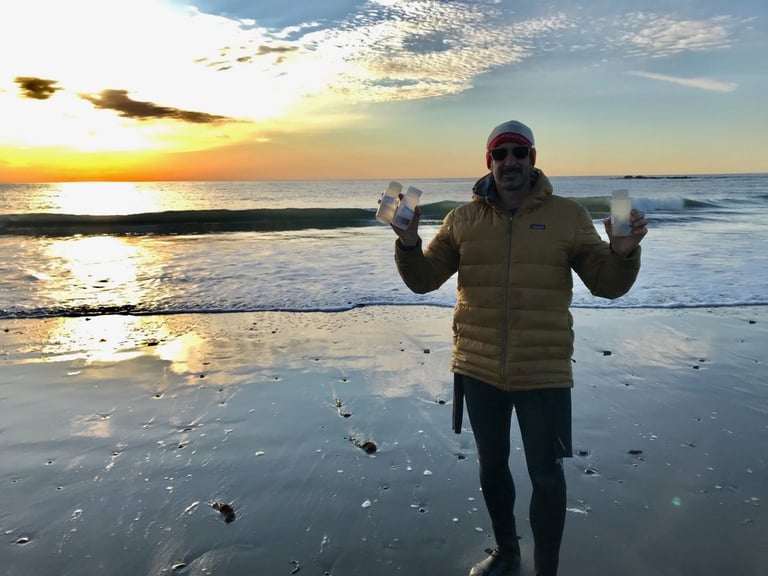
For this latest cycle of testing, Surfrider NH is partnered up with UNH, specifically microbiologist and seasoned water quality expert Steve Jones PhD, of UNH’s Jackson Estuarine Lab, a connection that was made through the Rye Beach Commission through local surfer and chapter member Frank Hwang.
Biweekly, volunteers wade into the water to gather samples from four different locations: The Wall at 15th St, North Hampton State Beach, Jenness Main Beach and Pirates Cove. Pirates Cove is a new addition for this round of testing, replacing Sawyer’s Beach, a sample site during the pilot round of testing 2019-2020. Following collection, volunteers deliver the samples to Jones at his lab at UNH, where they are tested for the bacteria and results are reported.
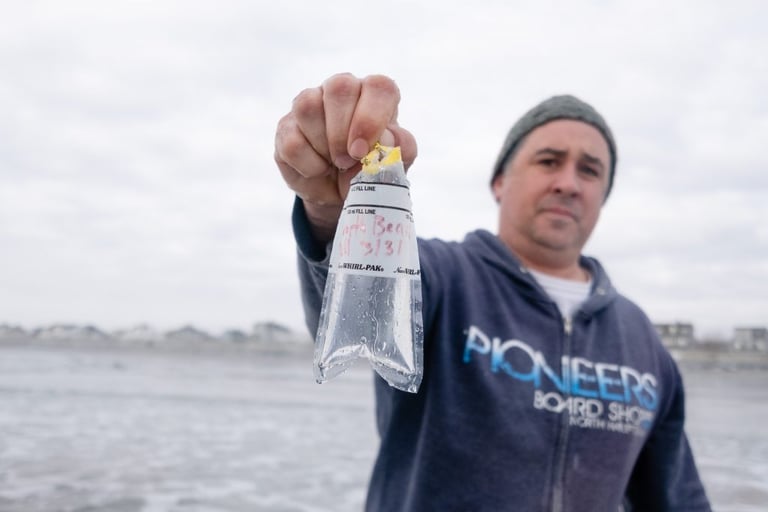
What makes the testing program unique and important, among other things, is its timeframe. While water testing is conducted during summer months by DES, the water has historically not been tested in the fall, winter or early spring months—times when local surfers, paddlers and other waterpeople are typically quite active. The program should provide a more complete picture of water quality throughout the year, and importantly, notify year-round ocean recreation users when the water is unsafe. It can also provide a better idea of where to look for potential sources of pollution. The data that results from testing can then be used to initiate a study to identify the source of the contaminant and ultimately work towards a solution to stop further contamination events.
Chris Grippo, volunteer Vice Chair of Surfrider NH and the chapter’s BWTF Coordinator, feels the importance of the program on a personal level. He said, “Healthy water is important. It impacts everyone one of us in some way. As a surfer, swimmer, and sailor, I have spent a lifetime (or so it seems) in the water and at one point traveled extensively. I know firsthand how contaminated water can affect people.” Like many others, Grippo has experienced the effects of dirty water suffering things like rashes, skin infections, GI infections and more, both locally and in far-off places in his travels from California and Oregon to Europe, and Venezuela, and more.
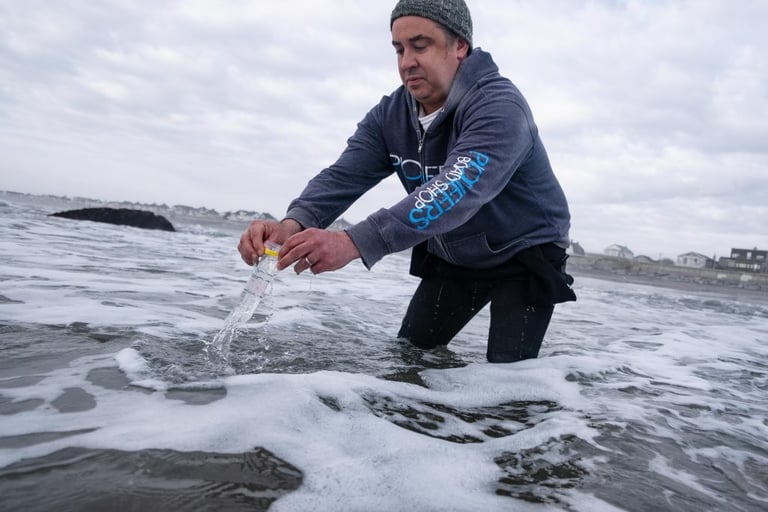
Concerned community members have an opportunity to help prevent water contamination by participating in the Surfrider Foundation’s federal campaigns to ensure funding for the BEACH Act and to ask Congress to fund the Clean Water State Revolving Fund (CWSRF). The BEACH Act funding is essential to help our state afford to operate its water quality monitoring program but has been stripped from the President’s budget for the last multiple sessions. We are optimistic that President Biden’s budget, anticipated in May, will maintain level funding for the BEACH Act at $10M but we are working with federal electeds to prepare to ask for this level-funding if it is excluded from the budget draft. The increase in funding for the CWSRF would provide much-needed grant and loan money to states for pricey wastewater infrastructure upgrades that protect our watersheds from sewage pollution This request is working through Congress now, so taking our national action alert is timely!
Here in NH, sampling the water, and reporting on whether or not there is an unsafe level of Enterococcus in the water allows recreational users to make a more informed decision about jumping into the water. According to Grippo, “Bottomline is that with our Blue Water Task Force program we can help to build a data model that is useful for spotting trends and may be used also to build a predictive model. But in its most basic form, we collect data and report on it so we can keep the public informed and safe.” Stay informed on local water quality by following @surfridernh on Instagram and checking our Blue Water Task Force site: https://nh.surfrider.org/water-quality/, both of which report out on the biweekly test results. At this time, testing is also planned for fall 2021 (September to December) and then again winter/spring from January through May 2022.
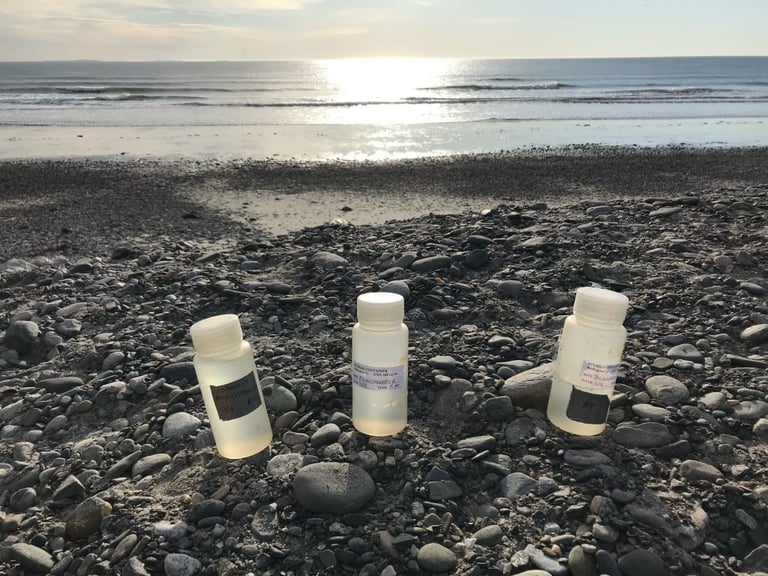
Additional Resources
FMI on the Surfrider Foundation BWTF Program: https://www.surfrider.org/programs/blue-water-task-force
NH Department Environment Services: https://www.des.nh.gov/water
Estuarine Lab: https://marine.unh.edu/research-centers/facilities/jackson-estuarine-laboratory
Rye Beach Commission: https://www.town.rye.nh.us/beach-committee
Water Quality: https://nh.surfrider.org/water-quality/
Volunteer: nh@surfrider.org
